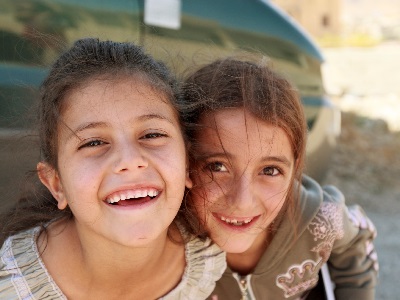This E-course aims at refining and consolidating child protection case management skills primarily for social workers working in a diversity of social service centers across Lebanon. The E-course is developed based on recently established National Standard Operating Procedures (SOPs) for the protection of Juveniles in Lebanon.
Introduction
This E- course is an eight-module course that introduces social workers and case managers working with children on concepts and procedures of case management for child protection. It helps them to better address the issues faced by children who are at risk and/or victims of violence, exploitation and abuse and to refine and consolidate child protection case management skills primarily in social workers working in a diversity of social service centers across Lebanon. It does not replace or reproduce the curriculum for social workers/case workers, but will make reference to them. All links provided within the course are for information purposes only. Participants will not be certified practitioners after taking the course nor after receiving the completion certificate.
Course objectives
Module 1: National and International Child Rights
1. Learning objectives:
1.1. To define children's rights
1.2. To list and explain the types and manifestations of discrimination and exposure to risk.
1.3. To understand the characteristics of the protection of children's rights without discrimination.
Module 2: Standard Operating Procedures for Child Protection in Lebanon
2. Learning Objectives:
2.1. To identify the concept of child protection
2.2. To identify the concept of risk
2.3. To identify the child protection system in Lebanon through both pathways: judicial and non-judicial
Module 3: Guidelines for Child Protection in Lebanon
3. Learning Objectives
3.1. To understand the principles underlying the role of case managers.
3.2. To identify the specific steps, assessments, and interventions required to protect children from violence in general, and from violence based on gender and social roles in particular.
3.3. To identify the types, controls, and methods of initial interventions.
3.4. To acquire the modalities of listening and facilitation in interventions at the individual and familial levels.
Module 4: Early Monitoring and Safe Referral in the Area of Child Protection in Lebanon
4. Learning Objectives:
4.1. To recognize the importance and necessity of early monitoring.
4.2. To identify warning signs.
4.3. To gain skills to determine the level of risk and prioritizing response
Module 5: Coping with disclosure of sexual Abuse Against children
5. Learning Objectives:
5.1. To understand the concept of sexual abuse.
5.2. To understand the monitoring and preliminary assessment of sexual abuse cases.
5.3. To learn how to deal with the disclosure of child sexual abuse.
5.4. To learn how to deal with third-party disclosure.
Module 6: The Case Management Process in Juvenile Protection
6. Learning Objectives:
6.1. To identify the phases of the case management process.
6.2. To identify how to assess the level of risk.
6.3. To be able to make a decision concerning the risk and suggesting the most appropriate path.
6.4. To be able to implement and review protection measures.
Module 7: Interviewing and Communication Skills
7. Learning Objectives:
7.1. To acquire interviewing skills that are age-appropriate, child-friendly, and psychologically minded for identification of risk situations
7.2. To gain communication skills for preparing children and families for next steps
Module 9: Self-care
8. Learning Objectives:
8.1. To identify the concept of secondary/transgenerational trauma and the impact of the field of work on mental health.
8.2. To acquire the skills of mitigating the impact of secondary/transgenerational trauma and clarifying individual needs and boundaries.
8.3. To acquire skills related to stress management, and self-care.
Target Audience
This E-course targets all social workers and case managers working with children. The course was prepared in two versions: the first version contains 6 modules that targets all front-liners and the second version contains 8 modules that targets the social workers and case managers. The two additional modules are: Module 6 (The Case Management Process in Juvenile Protection) and Module 7 (Interviewing and Communication Skills). It is worth mentioning that this course is a basic training and not a qualifying training and that further training is needed for practice. It does not substitute a university degree/diploma in related fields and does not qualify participants as practitioners, however it is intended to provide helpful and useful material, and increase knowledge on the subjects addressed in the e-course.
Duration
There is no time limit for the completion of this self-paced course.
Structure
This course is composed of:
• Introduction Video
• Disclaimer
• Module 1: National and international child rights
• Module 2: Standard Operating Procedures for Child Protection in Lebanon
• Module 3: Guiding Principles for Child Protection in Lebanon
• Module 4: Early monitoring and safe referral in the area of child protection in Lebanon
• Module 5: Coping With disclosure of sexual Abuse Against children
• Module 6: The case management Process in juvenile protection
• Module 7: Interviewing & Communication Skills
• Module 9: Self-Care
• Final Examination
Methodology
This is a self-paced course, participants are required to take all required modules to be able to sit for the final exam and obtain a certificate of completion.
Contact details
Ms. Myriam Samya (msamya@unicef.org)
UNICEF-Beirut
Credits
The E-course was developed by the Center for Public Health Practice (CPHP) of the Faculty of Health Sciences (FHS) in collaboration with the Office of Information Technology at the American University of Beirut and the Child and Adolescent Psychiatry Division at the American University of Beirut Medical Center.
